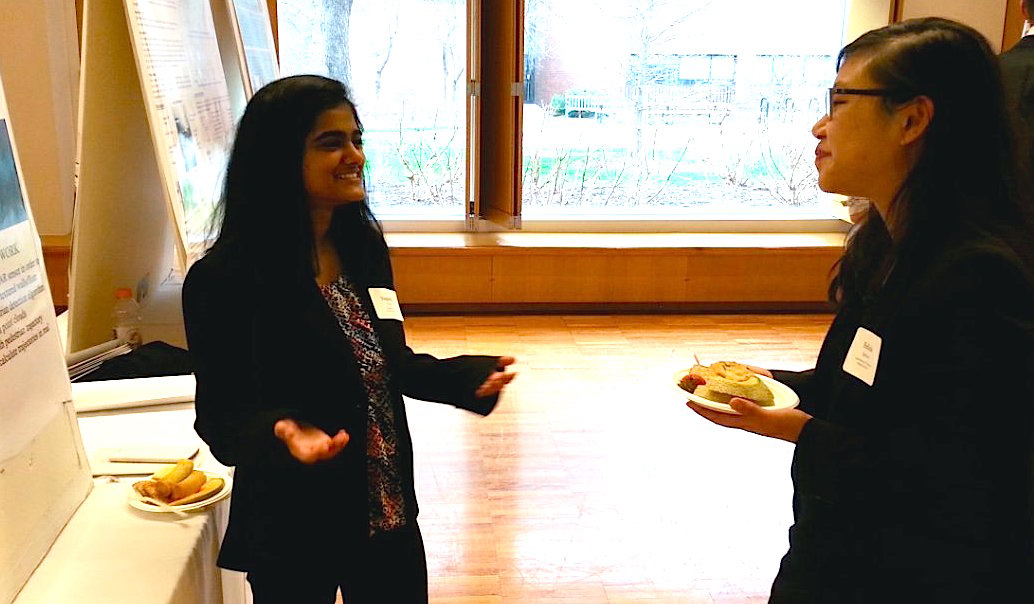Rawlings Scholars' research ranges from earworms to robots
By Blaine Friedlander


From creating well-mannered robots to updating weed field guides to understanding why catchy songs turn into earworms, more than four dozen graduating seniors explained their projects at the 2016 Senior Expo for Hunter R. Rawlings III Cornell Presidential Research Scholars April 21.
The Rawlings Scholars program provides significant research support throughout their undergraduate careers to students who show aptitude for strong academic potential and have demonstrated intellectual curiosity. About 200 students are supported annually.
Projects include:
This is the story of a girl who attended a high school seminar given by hit songwriter John Hampson of the pop group Nine Days. Once she entered Cornell, Julia Klein ’16 studied what makes music so catchy it turns into an earworm. In her findings, she narrowed factors such as tempo, harmonic complexity and the incidence of chain rhyming. Klein examined Billboard’s top hits from 1990 to 2015 on behalf of music websites to help to advise how to develop algorithms that play the music we like.
Yogisha Dixit ’16 is part of a project that hopes to bring “socially acceptable” behavior to autonomous robots – so that robots don’t run into people when they walk hallways by themselves. Using a set of 10 cameras on the robot that provides a 360-degree view, which can create a 3-D vision of the immediate world around the robot. With this information the robot can ascertain – on a sidewalk or a hallway – the appropriate moves to avoid pedestrians. “It allows the robot to have a meaningful interaction with pedestrians, so that the robots is not barreling through them,” said Dixit.
Since the 2008 Great Recession, the number of contingent workers has grown to 53 million people, and this fueled the rise of the gig economy. David Tauber ’16 examined the freelance economy of the U.S. in his poster, “Taxi Cab Revelations on the American Workforce.” By concentrating on the transportation company Uber’s relationship with its freelance drivers, he explored the present and future viability of the gig economy.
Due to a warming climate, weeds are slinking north – and the venerable field guide, Weeds of the Northeast, must be updated. Julia Dagum ’16 is revising it, researching and adding soon-to-be-seen weeds like Tropic croton (Croton glandulosus), Chinese yam or air potato (Dioscorea oppositifolia) and Cogongrass (Imperata cylindrica).
Media Contact
Get Cornell news delivered right to your inbox.
Subscribe